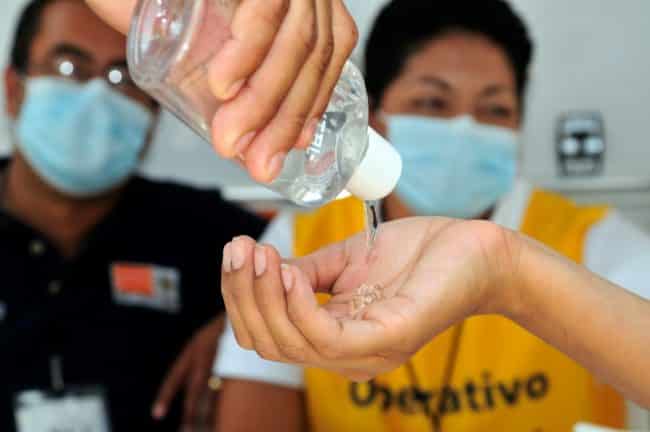Five simple steps to protect against flu

- The most common symptoms of influenza (flu) include fever, a dry cough, headache, muscle and joint pain, a sore throat and a runny nose.
- Each year, millions of people come down with flu. Most recover within a week, but for an unlucky few, flu can be deadly.
- Seasonal flu epidemics typically occur in late autumn and winter, so we can anticipate them, and prepare accordingly.
- In tropical regions, influenza can occur throughout the year, causing outbreaks more irregularly, but prevention is still important.
Here’s how you can protect yourself, and those around you:
Get vaccinated
Annual vaccination is the most effective way to protect yourself against flu, and serious complications.
Vaccination is especially important for pregnant women, at any stage of pregnancy.
It’s also crucial for children aged 6 months to 5 years, elderly people, those suffering with chronic medical conditions, and for health care workers.
Remember: a flu vaccine cannot give you flu. To feel achy or feverish after vaccination is a completely normal and natural reaction, and generally lasts only a day or two.
Wash your hands regularly
Clean hands protect against many infections, including flu. Keeping your hands clean is an easy way to keep yourself and your family healthy.
Wash your hands with soap and running water regularly and dry them thoroughly with a single-use towel. You can also use an alcohol-based handrub if you can’t get to soap and water.
Remember — washing your hands properly takes about as long as singing “Happy Birthday” twice.
Avoid touching your eyes, nose and mouth
Germs are most likely to enter your body through the eyes, nose and mouth.
You can’t control everything you inhale, but you can reduce the risk of infection by keeping your hands away from your face.
If you do have to touch your eyes, nose or mouth, do it with a clean tissue, or wash your hands first.
Avoid being around sick people
Flu is contagious. It spreads easily in crowded spaces, such as on public transport, in schools and nursing homes and during public events.
When an infected person coughs or sneezes, droplets containing the virus can spread as far as one metre, and infect others who breathe them in.
If you don’t feel well, stay home
If you’re ill with flu, being around others puts them at risk.
This is especially true for people with chronic medical conditions like cancer, heart disease and HIV.
Quickly isolating yourself can prevent the spread of flu and save lives.















